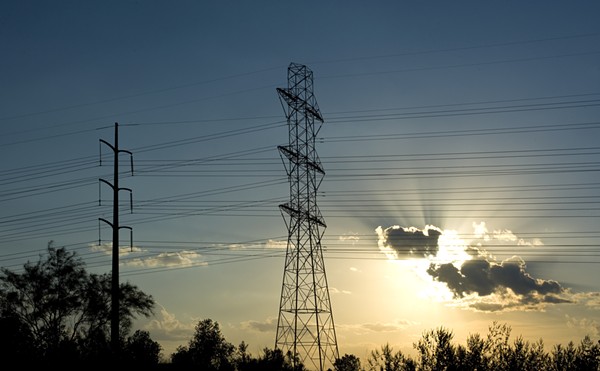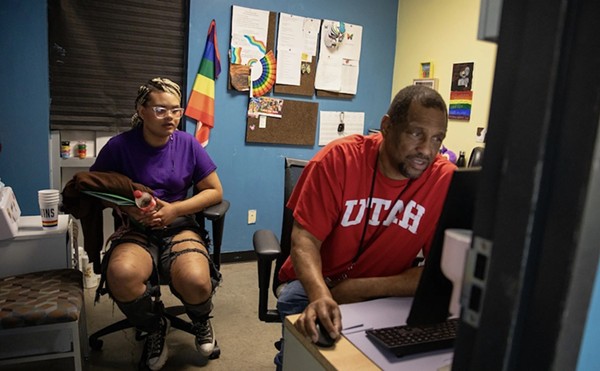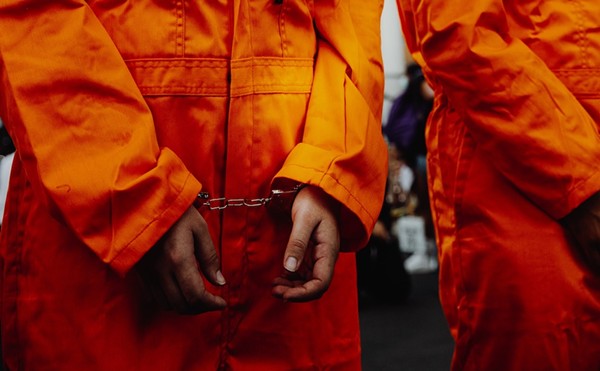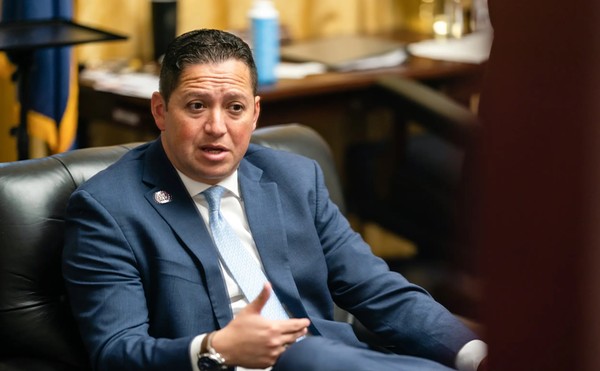|
What's in store for the Electoral College's Class of 2004? In the days between the November 2000 election and the U.S. Supreme Court decision that awarded the presidency to George W. Bush, Loyce McCarter, a member of Texas' Electoral College, received about 13,000 e-mails regarding her electoral vote. A third of the correspondences told her to remain faithful to the Republican Party, for which she is the Wilson County Chairman and state secretary, and another third begged her to switch over and cast her ballot for Gore. The remaining 4,000 or so were angry diatribes or lengthy treatises on democracy or the Electoral College. "One person wrote, 'I'm sure you'll be rich if you change your vote,'" says McCarter, an Electoral College member this year and author of the book, Electoral College Graduate Class of 2000. "Another said that if I changed my vote it would be a profile in courage." With the 2000 election still fresh in voters' minds, the 2004 race is reviving the debate of the utility and purpose of Electoral College, a 200-year-old vestige that some consider the appendix of the political system. Political observers are punching their Electoral College calculators, extrapolating various scenarios in which the college would tie, sending the vote to the House of Representatives, whose state delegations would have to decide how to vote, and so on, ad nauseum, until perhaps sometime in mid-2006 we would have a new president. Few would be discussing the college except that in 2000, George W. Bush lost the overall popular vote by 540,000. But he won the popular vote in enough populous states, which carry a larger number of Electoral College votes, to claim a 277-261 victory over Democrat Al Gore in the Electoral College, which always trumps the popular vote. A candidate needs 270 votes to win. "People freak out because the popular vote doesn't win over the electoral vote," says Trinity University political science professor David Crockett, who favors keeping the Electoral College. "Some argue that it violates one person, one vote."
In Texas, political parties with presidential candidates on the ballot - which in 2000, included the Greens and Libertarians - elect members to the Electoral College, generally during the parties' respective state conventions. Each party receives one elector for each Congressional District, plus two electors representing the Senate seats. Texas' Electoral College is comprised of 34 Democrats, 34 Republicans, 34 Libertarians, and 34 Greens. However, only the electors from the party that wins Texas' popular tally can cast their votes in college. So when Bush won Texas' popular vote in 2000, he also received 34 Electoral College votes from the state's Republicans. In mid-December 2000, when the nation's Electoral Colleges convened, Texas Republicans traveled to the state capitol, where they were feted by then-Lieutenant Governor Rick Perry with a lunch and reception before heading to the senate chambers. "It was really nice," McCarter recalled. "It began with a prayer and pledges and then they passed out the ballots for president and vice-president. It was very ceremonious and beautiful." As for the Democrats, "We didn't even go to Austin," said Maxine Molberg, a member of the Electoral College Class of 2000. "We didn't even meet." 'Faithless' voters McCarter didn't have to cast her electoral vote for Bush; she could have been a "faithless voter," one that votes for someone other than the winner of the popular vote. Several states, but not Texas, bind their electors - meaning they must cast their electoral votes for the winner - but without penalizing them. Other states bind their electors, and can fine electors who stray, although that has yet to be tested in court. Others, like Texas, allow their electors to vote for whomever they want. "Some argue that constitutionally you can't bind electors," Crockett said. "There's no provision in the constitution that electors are bound by law." Yet, electorates rarely break from the fold; their party elects them because they are usually diehard members whose vote is reliable. In 2000, a website listed the names and addresses of all Republican electors in non-binding states. Many of those electors, as did McCarter, received pressure from fellow citizens to switch their votes. Had just three electors swapped their votes, Gore would have won the Electoral College and the election. "I signed a piece of paper saying I would vote `Republican`," McCarter said. "When we were elected at the state convention, we all signed saying we would stick with the party." There have been only 10 "faithless voters" in U.S. history. In 1968 and 1972, two Republican electors withheld their votes for Richard Nixon. In 1988, a West Virginia elector cast her vote for vice-presidential candidate Lloyd Bentsen instead of Michael Dukakis. "Usually they are protesting something," Crockett said. "The West Virginia voter was protesting the existence of the Electoral College." After Gore lost the 2000 election, there was quite a bit of national outcry about abolishing the Electoral College. Although it seems antiquated, 200 years ago, America's founding fathers didn't want to have a direct, popular election because they thought most people wouldn't know the qualifications of people outside their states. Instead citizens would vote for people in their community who had the wisdom and discretion to be electors, and they - white, wealthy men - would choose the president. "The electoral college was designed to be non-partisan," said Crockett. "But when it comes to the election process for the presidency, it never worked the way they thought it would. Political parties got involved almost immediately and engineered the system to make sure they would get the votes." Although the Electoral College has hitches, it still has proponents, including Crockett. "I would have no trouble dispensing with electors as people," said Crockett. "But I find most of the arguments in favor of a direct popular vote are looking for something they're not going to get: a quicker, more democratic election." He said questions linger that if there were only a popular vote, a candidate could win with only a small percentage of the vote. Without an electoral college, third and fourth parties could be a more formidable force (which some would argue is a good thing), undermining the two-party system. McCarter, predictably, favors the college. "If we went to a popular vote, a person could win one big state and become president. The little states would be ignored. A candidate wouldn't campaign but in two or three big states." However, that's exactly what happens in political campaigns. States whose electorates are locked in, such as Texas, rarely see their presidential candidates, unless Dubya returns to his ranch for vacation. Kerry's all but written off the Lone Star state. "I think the college is very wrong," said Molberg. "The president should be elected by popular vote. And I want to be damn sure we don't take it to the Supreme Court again." • By Lisa Sorg
|
Tags:

KEEP SA CURRENT!
Since 1986, the SA Current has served as the free, independent voice of San Antonio, and we want to keep it that way.
Becoming an SA Current Supporter for as little as $5 a month allows us to continue offering readers access to our coverage of local news, food, nightlife, events, and culture with no paywalls.
Scroll to read more San Antonio News articles
Newsletters
Join SA Current Newsletters
Subscribe now to get the latest news delivered right to your inbox.

















